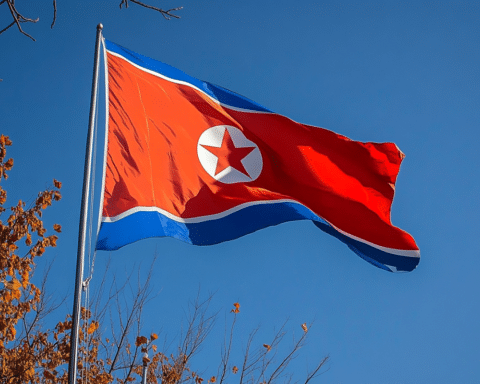In a significant development, North Korean leader Kim Jong Un has declared that his country will no longer pursue reconciliation with South Korea. Additionally, he has called for the rewriting of North Korea’s constitution to eliminate the concept of shared statehood between the two nations. This marks a departure from decades of efforts aimed at peaceful unification.
The decision comes amid escalating tensions on the Korean Peninsula, where both North Korea’s weapons development and South Korea’s military exercises with the United States have intensified in a tit-for-tat fashion.
Some experts speculate that Kim’s move is an attempt to diminish South Korea’s influence in regional security matters. It may also signal his preference for direct negotiations with the United States regarding the ongoing nuclear standoff, which has been exacerbated by disagreements over U.S.-led sanctions against North Korea’s nuclear weapons program.
In a further show of North Korea’s changing stance, Kim declared South Korea as a permanent adversary rather than a potential partner for reconciliation. This shift in policy could enhance the credibility of Kim’s escalatory nuclear doctrine, which authorizes the military to launch preemptive nuclear attacks if it perceives threats to Pyongyang’s leadership.
Kim’s actions coincide with his efforts to strengthen partnerships with Moscow and Beijing, aiming to break free from diplomatic isolation and bolster his position on the global stage.
The North Korean government has also abolished key agencies responsible for managing relations with South Korea. These include the Committee for the Peaceful Reunification of the Country, the National Economic Cooperation Bureau, and the Diamond Mountain International Tourism Administration. These agencies played pivotal roles in facilitating dialogue and cooperation between the two Koreas.
During his announcement, Kim attributed rising tensions in the region to South Korea and the United States. He cited their joint military exercises, deployments of U.S. strategic military assets, and trilateral security cooperation with Japan as factors turning the Korean Peninsula into a dangerous war-risk zone.
Kim called for the North’s constitution to define South Korea as its “primary foe and invariable principal enemy.” Furthermore, he instructed the removal of symbols of inter-Korean reconciliation and the elimination of related concepts from North Korea’s national history.
South Korean President Yoon Suk Yeol condemned Kim’s remarks as “anti-national and anti-historical” and pledged to maintain firm defense readiness. He warned of severe consequences if North Korea provokes South Korea.
Kim clarified that North Korea has no intention to unilaterally initiate a war but is prepared to engage in one if provoked. His regime has been accelerating weapons demonstrations and vowing to expand its nuclear arsenal.
Amid these developments, concerns have arisen about an alleged arms cooperation deal between North Korea and Russia, with accusations that North Korea provided Russia with arms, including artillery and missiles, to support Russia’s military efforts in Ukraine.
The situation on the Korean Peninsula remains tense, with the international community closely monitoring these unfolding developments and their potential impact on regional stability.




